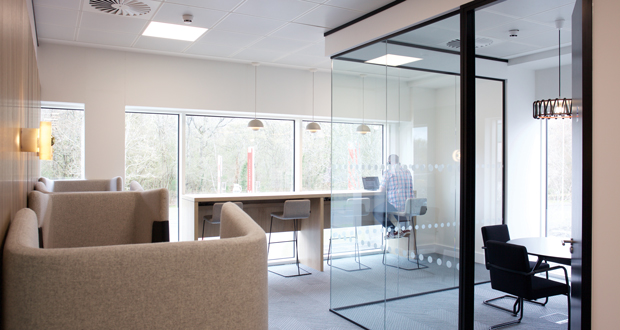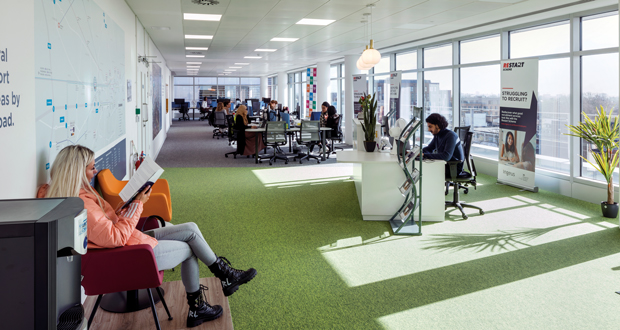GENEROUS AMENITIES
Coworking spaces have introduced various innovative amenities over the years, allowing them to compete with one another. For example, Neumann’s WeWork was renowned for its party culture. Their WeWork Summer Camp, a team-building weekend festival, was even compared to Glastonbury. WeWork spaces, until as recently as 2020, offered unlimited free alcoholic beverages, including wine and beer. Prior employees have even alleged being ‘plied’ with tequila shots during their interview with the company. Meanwhile, Regus, which controlled an incredible 11 per cent of the market compared to WeWork’s 1.7 per cent in 2019, is known for its privacy and formal focus. These spaces target a wide range of individuals, mainly promoting a sense of community while appealing to personalised needs.
It is important to note that community is a paramount feature of a coworking space. The Coworking Manifesto, a document signed by members of over 1,700 working spaces, outlines the importance of community within a coworking space. The statement “clearly articulates the values that the coworking movement aspires to, including community, collaboration, learning, and sustainability”. These ethical and inclusive attributes suggest a flexible workspace should be a place
where people can fulfil their aspirations, whether these are work-related or personal. It moreover suggests a place of growth and stability where individuals can develop within their work-related and personal lives.
As a result of such an ethos, these spaces have developed to boast new features. There is an increased focus on physical and mental wellbeing. This is due to the high demand from workers that have started to prioritise health in the workplace. Non-traditional facilities are regularly offered, breaking the stigma of the traditional work environment. These transform a coworking space into a wellbeing hub, with amenities such as:
- Yoga spaces
- Standing and ergonomic desks
- Ergonomic chairs
- Basketball courts
- Large fitness centres
- Healthy snacks and curated beverages
- Meditation rooms
- Climbing walls
In 2022, these features are signs that WeBuild where WeWork. Individuals and their humanistic needs are now considered vital when planning new office spaces or adding new amenities or features. Previously, only non-traditional creative jobs were associated with such coworking spaces. However, even financial, legal, real estate and consulting services are now vital players in offering the shift to hybrid working.
For example, PSG Global worked on office space for Hyperoptic in 2020. The business’ relocation to Kings House in Hammersmith provided 18,500 sq ft of high-quality office space. PSG Global was appointed to develop a visually stunning office with collaborative areas and executive spaces. The renovation required installing a multitude of exciting features, such as 12 breakout areas, a curved ‘war room’, a demonstration zone and a training centre with touchscreen booking capabilities. There were additionally several refreshment zones installed and a wellness room with personalised audio sensory features. Lastly, the boardroom was designed to overlook a nature-inspired ‘green roof’ to support local wildlife.

COWORKING AND BEYOND
Is this the final step in creating a work environment that values the health of all attendees? The future of working might go beyond this. The MetaVerse, a fictional 3D universe, has recently come into the public eye. This immersive virtual world transforms the internet into a virtual reality wherein we can work, hug loved ones virtually, or even attend concerts.
The MetaVerse follows the ethos of collaborative spaces. Digital interaction promotes a connected experience. You can meet others, learn new skills, and complete any tasks required. Facebook recently promoted the importance of a virtual community, rebranding to ‘Meta’. The 3D spaces offered will “let you socialise, learn, collaborate and play in ways that go beyond what we imagine”. This bold statement by Mark Zuckerberg, the CEO, suggests that the MetaVerse is here to stay.
The COVID-19 pandemic has overhauled any preconceptions of the ‘standard’ working environment. 2022 marks the possibility of going further, with digital avenues available. Architects and fit-out companies could soon become virtual reality (VR) experts, designing digital worlds. One thing remains clear: workers’ needs will, and should, remain kept at the forefront.





